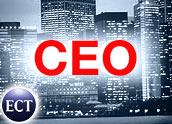
Philips Electronics on Thursday announced plans to acquire Lifeline Systems, a personal emergency medical services company.
Philips has offered approximiately US$750 million, or $47.75 per share to buy the firm. That’s 21 percent higher than Lifeline’s closing stock price of $39.49 on Wednesday. Lifeline’s board of directors unanimously approved the transaction, which is subject to customary closing conditions and shareholder approval.
Lifeline made its mark with a phone service that allows patients at home to contact medical personnel in case of an emergency. The service boasts about half a million subscribers.
“The acquisition of Lifeline is an important step on our roadmap for growth in healthcare,” says Gerard Kleisterlee, President and CEO of Royal Philips Electronics. “By targeting seniors and other people who want to continue living independently and exerting more control over their health and lifestyle, we aim to become a global player in the evolving home healthcare market.”
Targeting an Aging Population
The aging of the population provides strong underlying market growth for home healthcare solutions such as those offered by Lifeline. Today, seniors represent around 15 percent of the population in the developed world, a figure that is expected to almost double over the next 25 years, according to Philips market research.
“The Lifeline acquisition complements Philips’ business,” Frost & Sullivan Research Analyst Nathan Cohen told the E-Commerce Times. “Manufacturers are seeing potential in the home healthcare market. Philips is already a leader in putting automated defibrillators in homes.”
Market Demand
At the same time, seniors are becoming increasingly active in managing their own health and wellness as evidenced by Lifeline’s sales. Lifeline’s revenues in 2005 are expected to be approximately $150 million, representing a 15 percent increase over 2004. A large part of the company’s revenues are classified as recurring.
Lifeline’s twenty-four-hours-a-day service is designed to offer independently minded seniors the confidence to maintain an active lifestyle at home, knowing if they suddenly need help, they can send an alert to a call center to indicate they need assistance.
Two-way communication allows a Lifeline operator — who has instant access to the pertinent health history and personal profile of the caller — to establish the nature of the problem. Appropriate action can then be taken, including notifying a neighbor or family member, or summoning emergencyservices.
Significant Growth Ahead
Personal response services are already the largest category of home healthcare solutions purchased out-of-pocket by older adults and their caregivers. Still, penetration in the 65 years and older age group is just 2-3 percent, according to Philips, allowing for significant future growth.
Lifeline’s operating margins in 2005 are expected to be approximately 15 percent. The company has a broad market presence in United States and Canada. The company markets its services through a network of more than 2,500 hospitals and other healthcare providers and serves a subscriber baseof nearly 470,000.
“This service relates to chronic disease management and elderly care, which will probably be the cornerstone of home monitoring solutions,” Cohen said. “This acquisition fits in with Philip’s strategy to expand its patient monitoring businesses and healthcare technologies to cover the home.”























































Social Media
See all Social Media